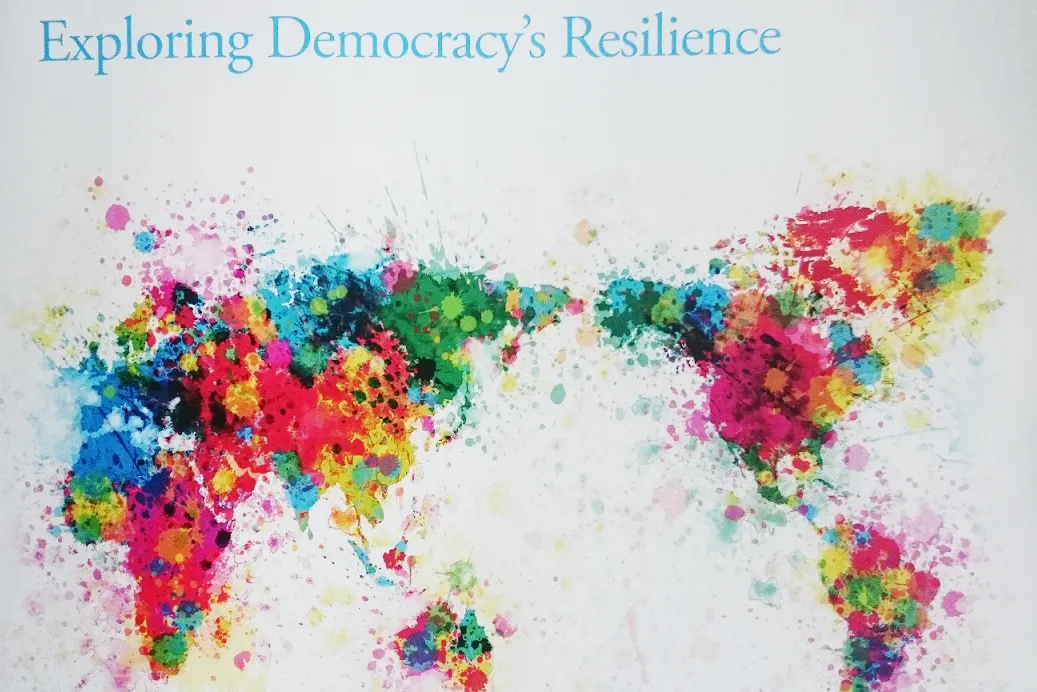The State of Democracy: Stagnation, Regression, or Resilience?

Disclaimer: Views expressed in this commentary are those of the staff member. This commentary is independent of specific national or political interests. Views expressed do not necessarily represent the institutional position of International IDEA, its Board of Advisers or its Council of Member States.
Este artículo se encuenra disponible en Castellano.
Democracy is going through a critical moment. According to the Democracy Index (2017), produced by the Economist Intelligence Unit (EIU), only 19 countries are fully democratic, most of them in western Europe. And of the 167 countries analyzed by the Index, 89, i.e. more than half, showed signs of deterioration in 2017.
At the same time, the rise of authoritarian leaders, as well as the growing boom of populism and of far-right political forces in several regions, has given rise to an intense debate on how democracy is faring today. For some analysts the world is experiencing a slowing down and stagnation of democracy. Others, more pessimistic, even speak of democratic regression. A third group, more optimistic, notes on the other hand that despite the major challenges stalking democracy—which should not be underestimated—it nonetheless enjoys a considerable level of citizen support and is resilient, strengths that mustn’t be ignored (Report of International IDEA on “The Global State of Democracy” (2017).
Yesterday, 15 September, the International Day of Democracy was celebrated. The central theme was “Democracy under Strain: Solutions for a Changing World.” For António Guterres, UN Secretary General, democracy is subject to more pressure than at any other time in many decades. In response, he proposes to seek ways of strengthening it and responding to the main challenges facing democracies, especially correcting inequality, strengthening inclusion, and succeeding in getting democratic institutions to be more innovative and receptive to the new demands.
And all of this, together with the fact that this year Latin America is marking the fortieth anniversary of the beginning of the third democratic wave, makes this an appropriate moment for assessing the state of democracy in Latin America.
Regionally, 2018 is turning out to be a mediocre year economically, a complex year socially, and one characterized by an intensive electoral marathon (six presidential elections: Costa Rica, Paraguay, Colombia, Venezuela, Mexico, and Brazil) whose results are reconfiguring the Latin American political map. To this we must add the existence of a growing wave of demands and thwarted expectations together with corruption scandals, whose lethal combination erodes the credibility of democracy and its institutions.
In effect, the regional outlook is worrisome. According to the Democracy Index, the quality of democracy in Latin America – similar to the world trend – has deteriorated. Only one Latin American country, Uruguay, is considered a “full democracy.” Most (10 in all) belong to the group of “flawed democracies.” Five other countries are considered hybrid regimes: Guatemala, Honduras, Nicaragua, Bolivia, and Paraguay. And two are classified as authoritarian regimes: Venezuela and Cuba.
The deterioration in the quality of democracy is accompanied by more bad news: a decline in both the level of support for and the index of satisfaction with democracy. According to Latinobarómetro 2017, both variables declined: support diminished for the fourth year in a row, at 53 per cent; and satisfaction fell off sharply, with a regional average of 30 per cent.
The explanation for both phenomena lies largely in the lack of correspondence between, on the one hand, the expectations and demands of a citizenry that improved its level of consumption, that is more empowered and more demanding of their rights, that is more connected to the social networks, and on the other hand the sense of frustration and fear of losing what was attained or of not being able to continue consuming and producing at the same pace. This growing citizen discontent is causing indignation with politics and the elites, increased polarization, and a growing anti-establishment vote; greater social conflict; and more complex governability.
Towards a democracy that is resilient and of a new generation
Both globally and in Latin America, we are witnessing an “epochal change” accompanied by opportunities, but also by new challenges and threats to democracy.
Despite the major gains in the last four decades, which we should recognize and value, Latin American democracies exhibit major deficits and symptoms of fragility, as well as serious challenges among which special mention should be made of institutional weakness, the desire to remain in power indefinitely, high levels of inequality, along with high levels of corruption, insecurity, and impunity.
In addition to the toxic combination of the above-noted factors are the disruptive changes brought about by the Fourth Industrial Revolution, the new forms of engaging in politics stemming from technological change, and the growing importance of the social networks and fake news.
This new and complex reality demands a renewed agenda of reforms aimed at improving the levels of representation, ensuring governability, and strengthening democratic resilience, understood as the capacity of social systems to take on crises and complex challenges as well as to survive them, innovate, and recover.
The priority includes ensuring effective citizenship, expanding citizen participation, recovering the legitimacy of and credibility in the institutions, and ensuring full observance of the rule of law to lay the bases of a new generation democracy, with better quality and greater resilience.
To that end a set of political reforms needs to be set in motion whose objective is to have: (i) modern and democratic parties with transparent financing, and legitimate legislatures with the capacity to represent and channel social demands, supplemented by mechanisms of citizen participation; (ii) institutions and oversight mechanisms or checks that impede the abusive exercise of power and ensure appropriate levels of transparency and accountability; and (iii) an independent judicial branch with adequate resources to ensure the full observance of the rule of law and juridical security.
This is the agenda that Latin America’s political leadership needs to pursue with urgency, intelligence, and innovation, aimed at recovering the complicity and trust of a citizenry that identifies with democracy yet does not believe in its institutions, and has become increasingly indignant when it comes to politics and the political elites.
Part of this article was originally published in Spanish in La Tercera.




